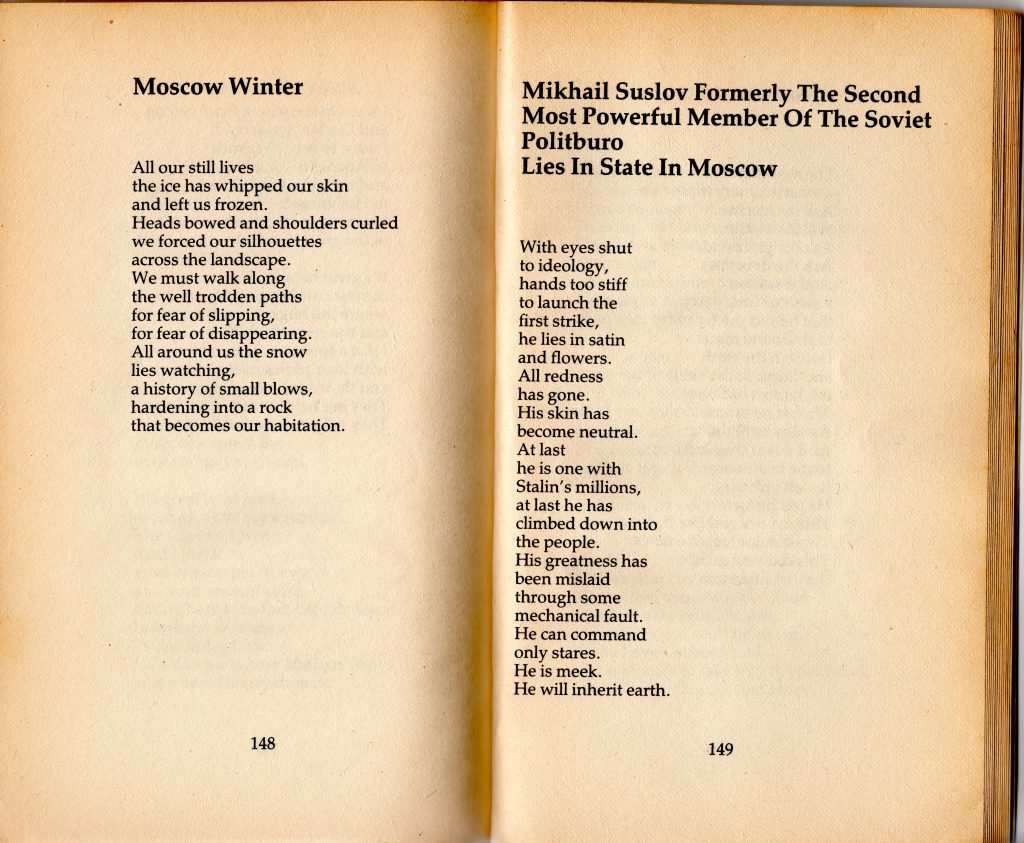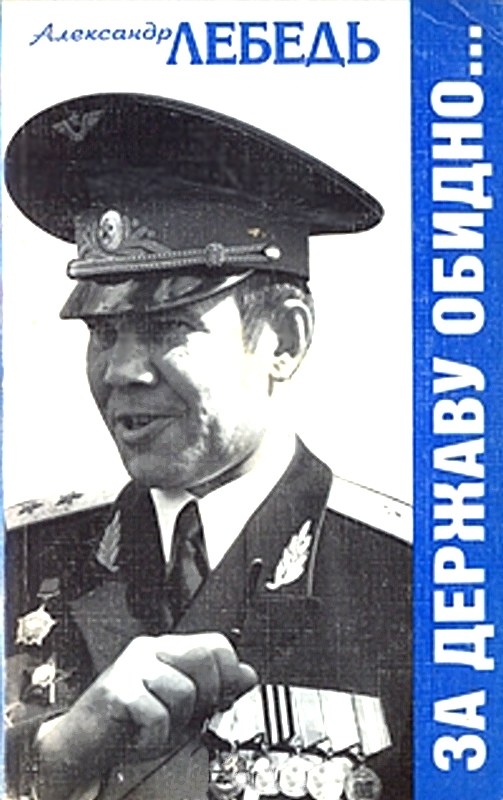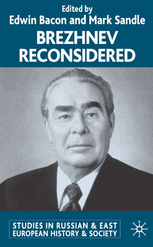
Russia-in-poetry rather than Russia-in-fiction. There’s a short and little known poem by Steve Turner, written in 1982, called, not very catchily:
Mikhail Suslov Formerly The Second Most Powerful Member Of The Soviet Politburo Lies In State In Moscow
Up To Date, Steve Turner (1983)
Turner is a music journalist, children’s author and —back in the 1980s— trendy poet of the Roger McGough, Brian Patten, Stuart Henderson type, though, unlike these contemporaries, not from Liverpool.
Despite what these two side-by-side poems suggest, Turner did not habitually write about Russia. But he did write about the big issues in life as seen by a young British man in the early 1980s, and so the Soviet Union occasionally came to the fore.
Some four decades on since it was written, Suslov seems scarcely remembered even amongst those of us who follow Russian politics. But back then a British poet saw Mikhail Suslov as the second most powerful man in the Soviet Union. In a world of two superpowers, this might put Suslov in the top half dozen most powerful people in the world?
Suslov died in January 1982. He found himself something of a trend-setter when it came to funerals and lying in state, which were soon to become very popular with the Soviet leadership.

Brezhnev finally managed to pass away in November 1982. (Some think this his second attempt, as he is said to have been revived from clinical death in 1976.) His two successors as Soviet leader and presumably second most powerful man in the world —Andropov and Chernenko— both rapidly followed the state funeral trend.

In the mid-1990s I read the memoirs of Soviet General, and briefly putative Russian president, Aleksandr Lebed. They provided a great quote for my Brezhnev Reconsidered book.
“In the early 1980s Lebed studied at the Frunze Military Academy in Moscow, where his particular duty was as a member of the Funeral Detachment.
‘Remember that I studied at the Academy from 1982 to 1985. In this period, in terms of General Secretaries alone, three died. And then there was Marshal of the Soviet Union Bagramyan, Ustinov [Defence Minister], Politburo member Pel’she. And many more less well known but no less important people. We weren’t short of work.’
A. Lebed, Za derzhavy obidno … Moscow: 1995, pp. 176-77
A political and economic malaise appeared to have settled on the Soviet Union by the early 1980s as the superpower found itself ruled by a gerontocracy.”
Brezhnev Reconsidered, p. 3
No one was more surprised than me to see Brezhnev Reconsidered featured on prime time Russian TV a decade after its publication. See here.
